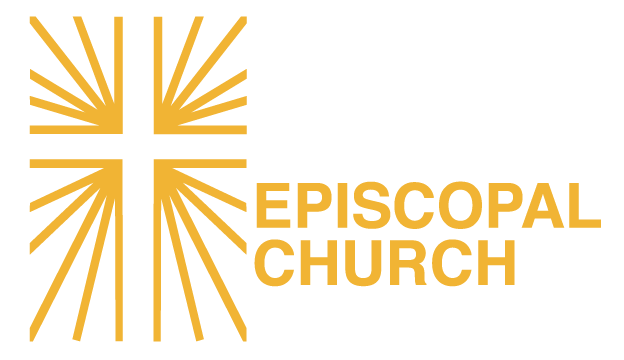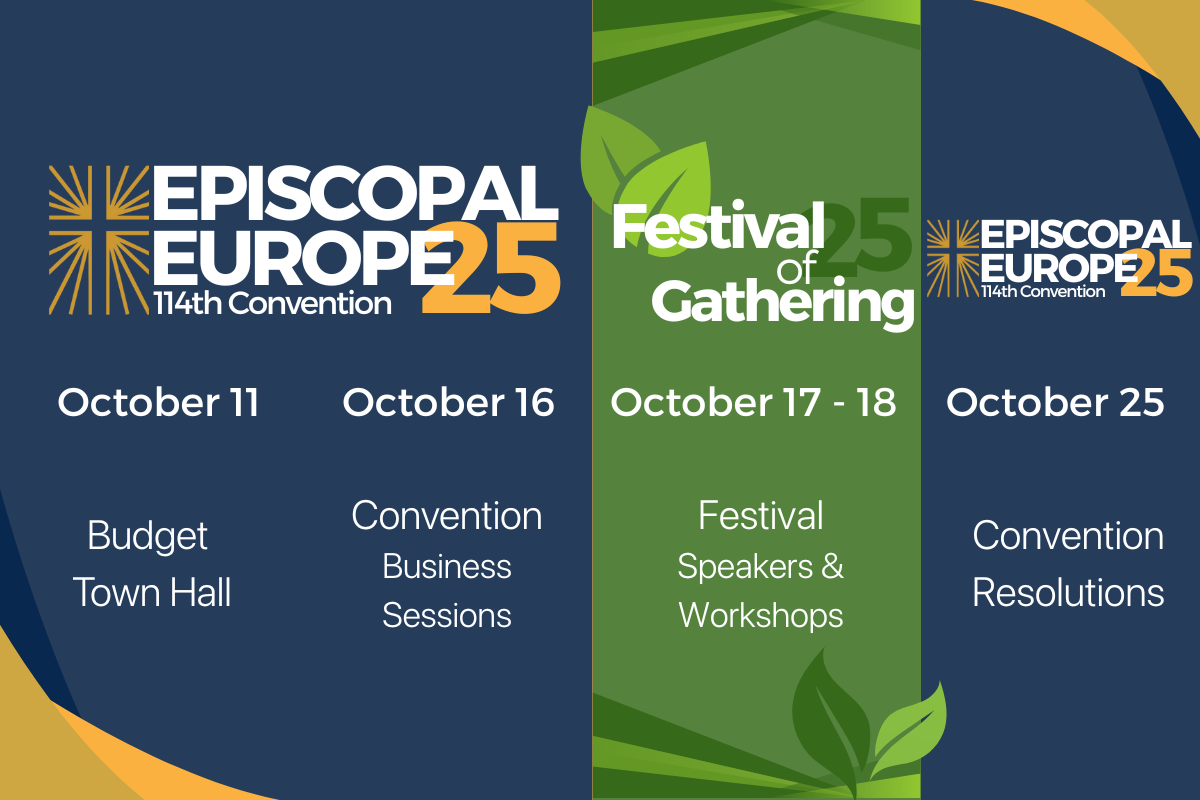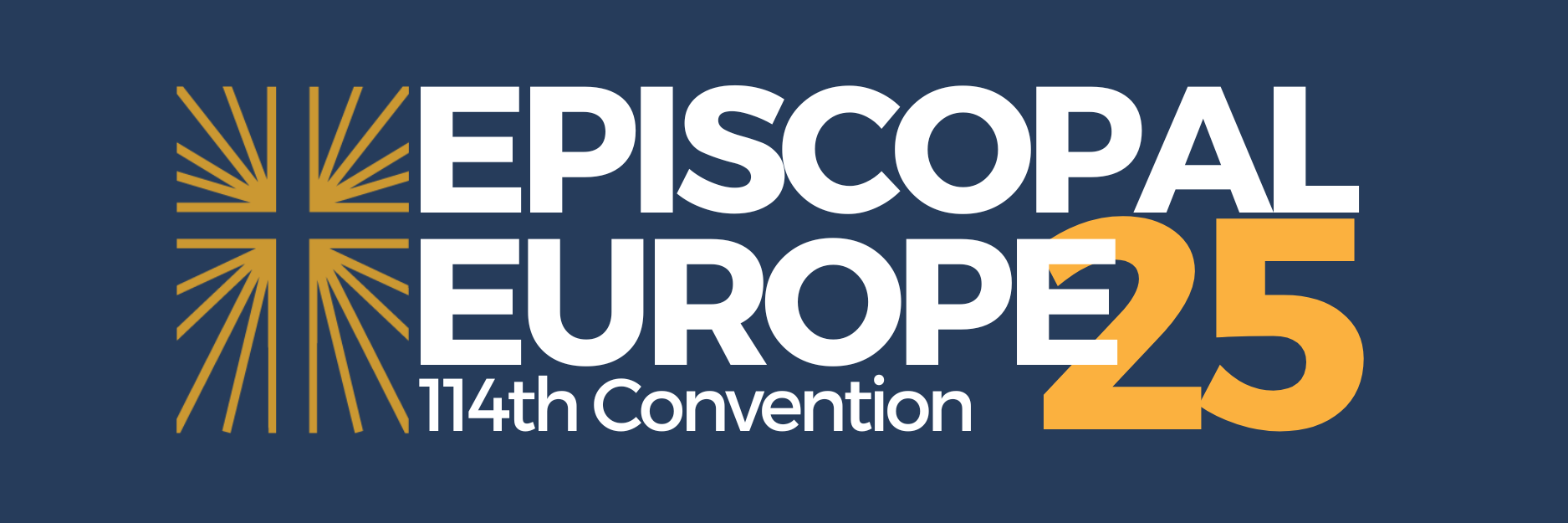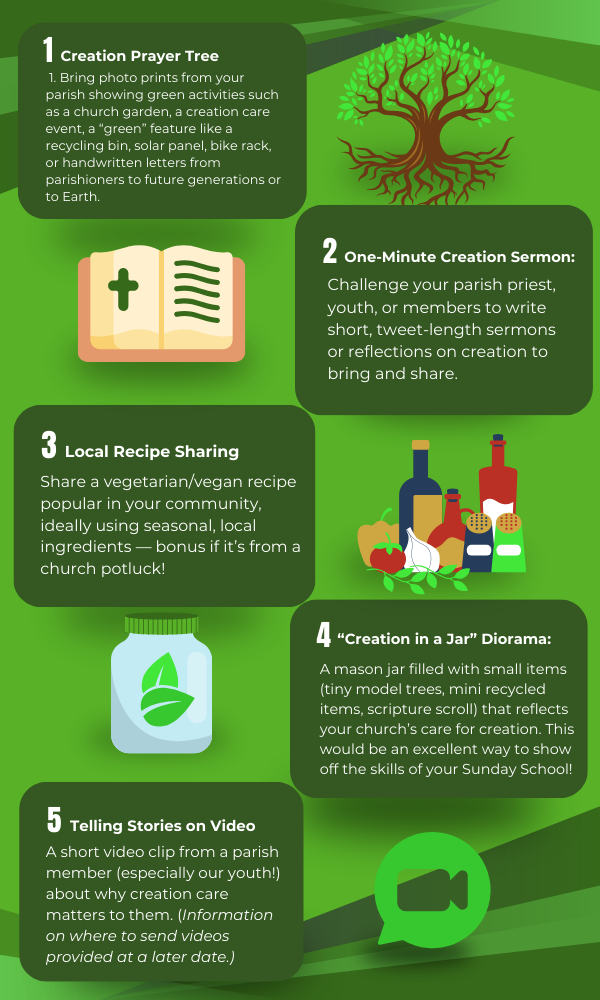Becoming good stewards of god's creation
The Episcopal Church in Europe
114th Convention
4th Festival of Gathering
Help shape the future of the church through our business sessions at Convention. Discover the power of community and faith by connecting with fellow members at the Festival of Gathering, and be inspired by our shared mission.
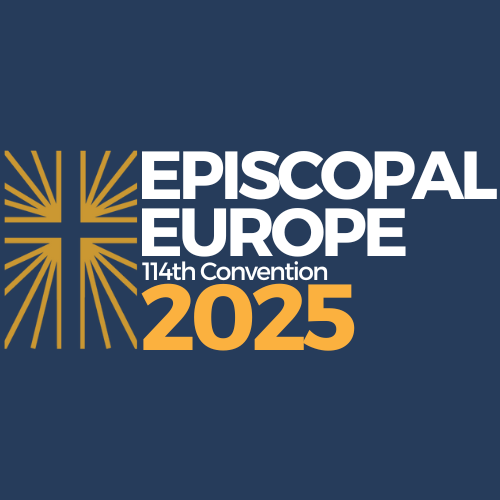

Resolutions, Outcomes, Actions
Among the business sessions of Convention, several resolutions were passed, elections held, and actions encouraged. Read below for the outcome and actions of Convention, which affect our Congregations and our Convocation.
Resolutions
A total of 16 Resolutions were presented to Convention.
Resolution 2025-1: To Amend ARTICLE IX (OF THE ELECTION OF OFFICERS) of the Constitution of the Convocation (APPROVED)
Proposed by The Ven. Walter Baer, Parliamentarian, Second Reading
The Convention,
To simplify elections of officers and the amending of the Constitution, and in line with the General Constitution and Canons and the practice of many Episcopal Dioceses,
Resolves as follows:
- That in ARTICLE IX, Section 2, of the Constitution of the Constitution and Canons (OF THE ELECTION OF OFFICERS), the words “shall be elected by ballot and by Orders” be replaced with the words “shall be elected by ballot.”
On passing of second reading of this resolution, Article IX, Section 2, of the Constitution shall read:
ARTICLE IX.
OF THE ELECTION OF OFFICERS
SECTION 2. Members of the Council of Advice, and Deputies to the General Convention, shall be elected by ballot.
Result
In 2024, this resolution had been approved unanimously in the clergy order and with one vote against in the lay order. Having received approval with one dissenting vote in the clergy order and unanimously in the lay order at its second reading at the 2025 Annual Convention, it now takes immediate effect.
Explanation:
The custom of electing Council of Advice members and General Convention Deputies by Orders is cumbersome and unnecessary. This practice is unknown in other dioceses and is not required by the General Constitution and Canons of the Episcopal Church.
Changes to the Constitution of the Convocation require passage at two successive Conventions by a majority in both orders.
In 2024, this resolution had been approved unanimously in the clergy order and with one vote against in the lay order. Having received approval with one dissenting vote in the clergy order and unanimously in the lay order at its second reading at the 2025 Annual Convention, it now takes immediate effect.
Resolution 2025-2: Amending CANON 3: OF THE COUNCIL OF ADVICE
Proposed by the Council of Advice
Resolved, That Canon 3. SECTION 2, of the Constitution and Canons be amended to read as follows:
SECTION 2.
1. The terms of office for Council of Advice members shall conform to the calendar year and begin on the first of January in the year following the Annual Convention. The term of office of an outgoing member will end when the newly elected member takes office.
2. The Council of Advice at its first meeting and annually thereafter shall choose a President, Vice-President and Secretary from among the members as officers, all of whom to serve until their successors are elected and accept election. The Vice-President shall be from a different order to that of the President. be from a different order to that of the President.
3. The Secretary shall record its proceedings in an appropriate electronic file format, and such records, data and documents in its possession relative to the Convocation shall be subject to the examination of the Bishop and of the Convention; and a full report of its acts shall be made at each Annual Meeting of the Convention.
4. Five members of the Council shall be a quorum, subject to any specific provisions stated by the General Canons of The Episcopal Church.
Conversation
The Rev. Chris Easthill moved deletion of the changes proposed in Section 2 (2) and restoration of the original text.
The Chair said that the Chancellor felt that it was inappropriate for someone in clerical orders to have authority over the Bishop with regard to ownership of the Bishop’s apartment.
Result
Moved and seconded, the amendment in question was approved by a vote of 25 for and 17 against.
The amended resolution was then approved with one dissenting vote.
Explanation:
Canon 3, Section 2, is hereby subdivided into four subsections for purposes of clarity.
Two separate changes are included:
- The beginning and the end of terms of office: The terms of office of newly elected Council member will commence on January 1 following the Annual Convention at which the election occurred.
- With the expansion of responsibilities of Council of Advice, to include being President of the Convocation’s French Associations, a time of transition to hand over responsibilities will be built in to facilitated uninterrupted convocation fiscal operation.
- The choice and election of officers for the new Council can be more deliberative.
- With this change, the President of the Council of Advice will always be elected from the Lay Order. This provision obviates the untenable situation where a clergy President of the Council of Advice in their simultaneous role as President of the Convocation’s French Association is a canonically resident member of the clergy who then acts a fiscal agent over the bishop or as “landlord” to the bishop.
Approved by the Council of Advice and the Bishop
Resolution 2025-3: Amending Article VII of the Constitution
Proposed by the Council of Advice
Resolved, That Article VII of the Constitution be amended to read as follows:
ARTICLE VII.
OF THE COUNCIL OF ADVICE
The Council of Advice, elected in accordance with Title I, Canon 15, Section 9, of the General Canons, shall consist of four Clergy canonically resident in the Convocation, and four Laity, resident in the Convocation. Initially, two Clergy and two Laity shall be elected to serve for one year, and two members in each Order shall be elected to serve for two years. Thereafter, two members in each Order shall be elected at each Annual Convention to serve for two years. Any member who may have been elected for two three consecutive terms shall be ineligible for re-election at the Annual Convention in that year in at which that term expires. The Council shall have authority to fill vacancies in its own membership. Members shall serve until their successors are elected and accept election.
Result
Approved by a majority in each order at Convention, this amendment will need to be approved by a majority in each Order at the next Annual Meeting of the Convention in 2026 before becoming a part of the Constitution of the Convention, at which point the amendment will take immediate effect.
Explanation:
This change, adding the possibility of a third two-year term, provides for greater continuity in the governance of the convocation, especially given the greater oversight role that the Council of Advice has assumed with changes in our French Association Statutes and the additional new specialized French corporation, in which the Council of Advice president serves as chair.
Approved by the Council of Advice and the Bishop
Resolution 2025-4: To Add Nicholas of Flüe to Lesser Feasts and Fasts
Proposed by Dr. Georg Meyer, Ms. Megan Preston Meyer and The Rev. Deacon Richard Cole, Emmanuel Church, Geneva, Switzerland
The Convention,
Recognizing that bridging divides and bringing together disparate opinions is necessary for healing and reconciliation, and to counter the current climate of polarization,
Resolves as follows:
- That this Convention of the Convocation of Episcopal Churches in Europe propose that Nicholas of Flüe be added to the calendar of Lesser Feasts and Fasts, and
- That the resolution below be brought before the 82nd General Convention of The Episcopal Church.
“Resolved, the House of ___ concurring,
That the 82nd General Convention designate December 22, March 21, or another appropriate date on the Church Calendar as the annual celebration of the life, ministry and witness of Nicholas of Flüe (also known as Brother Klaus), a symbol of peace and reconciliation who bridged bitter divisions, and patron of Switzerland; and be it further
Resolved, That the General Convention encourage commemorations of Nicholas of Flüe to include discussion and prayers for peace and reconciliation through mediation and mutual understanding throughout the world; and be it further
Resolved, That the 82nd General Convention direct the Standing Commission on Liturgy and Music to prepare appropriate Biblical lessons, Collects and other liturgical resources commemorating the life and work of Nicholas of Flüe.”
Result
The resolution was approved with one dissenting vote.
Explanation
Nicholas of Flüe, also known as Brother Klaus, exemplified peacemaking and reconciliation through his life, ministry, and witness. Brother Klaus followed his call to choose solitude, prayer, and contemplation over a life of prosperity as a respected public official. In his hermitage, he was sought after by many for his wisdom and mediation skills, being able to mediate between rich and poor, rural and urban, powerful and common. His diplomatic advice was sought both at home and abroad, even by notable figures like the Emperor of Austria and the Duke of Milan.
Brother Klaus’ counsel not only prevented a violent civil war in the 15th century which threatened to tear apart the early Swiss Confederation; it laid the foundation for centuries of peaceful coexistence in a nation rife with potential for conflict—between conservative and progressive, rural and urban, Roman Catholic and Protestant, and German/French/Italian and Romansh speakers.
To this day, Nicolas of Flüe serves as a role model for resolving conflict through mutual respect and dialogue. As the first Swiss-born saint in Lesser Feasts and Fasts, his inclusion would reflect the increasingly international nature of The Episcopal Church. The Biblical readings and Collect selected to commemorate Brother Klaus would be a welcome reminder that, even in the midst of bitter polarization, reconciliation and peace are possible.”
(December 22, 1481 – The Stanser Verkommnis (Diet of Stans), in which Brother Klaus’ mediation, advice and appeal to all parties brought an end to hostilities and averted civil war.
March 21, 1487 – Day of his death)
The Rev. Chris Easthill wondered if Nicholas von Flüe could not be part of a Convocation list of saints but did not offer an amendment. Audrey Habiby-Jolivet expressed concern about a mixture of religion and politics but did not offer an amendment. Helena Mbele-Mbong said that the commemoration could be added to the Convocation Cycle of Prayer.
Resolution 2025-5: Moses of Ethiopia
Proposed by the Racial Justice and Beloved Community Ministry team: Mr. Haswell Beni (Florence), Ms. Sylvie Botétémé (Paris), Mr. David Case (Munich), the Rev. Stéphanie Burette (Oxford), Ms. Lois Stuckenbruck (Munich), the Rev. Canon Mpho Tutu van Furth (Amsterdam)
Resolved,
That this Convention of the Convocation of Episcopal Churches in Europe submit to the 82nd General Convention of The Episcopal Church in 2027 the following resolution:
Resolved, the House of ________________ concurring,
That the 82nd General Convention authorize amendment of the Calendar of the Church to insert “Moses of Ethiopia” as a direct replacement for “Moses the Black”, and be it further
Resolved, That the hagiography in Lesser Feasts and Fasts be amended to read as follows:
“Moses of Ethiopia was a fourth-century monk who lived in one of several isolated desert monasteries near Scete in Lower Egypt. He was described as being tall, strong, and in his early life, an enslaved person and the leader of a marauding robber band. While fleeing from the authorities, he took shelter with a group of monks. He was so impressed with their faithfulness and kindness that he chose to be baptized and to remain with them.
He led an ascetic life, lived in a simple cell, and ate only ten ounces of dry bread each day. Once, when the monks gathered to judge a member who had sinned, Moses arrived carrying a leaky basket filled with sand on his back. He explained that what he was holding behind him represented his own many sins, now hidden from his own view. “And now I have come to judge my brother for a small fault,” he remarked. The other monks then each personally forgave their erring brother and returned to their cells.
It is to Moses that one of the most famous pieces of advice from desert monasticism is attributed: “Go, sit in your cell, and your cell will teach you everything.”
When Moses was an old man, he was warned that an armed band of raiders was approaching and that the monks needed to flee. “Those who live by the sword shall die by the sword” (Matthew 26:52), the former robber-murderer calmly replied. “I have been waiting for this day to come for a long time.” He and six other brothers waited patiently, and were all slain.” and be it further
Resolved, That The Episcopal Church lament the resounding silence and careless inaction over a decade that have left disrespectful and racist references to “Moses the Black” unchallenged and unchanged, and be it further
Resolved, That the 82nd General Convention direct the Office of Ecumenical and Interreligious Relations to engage with our siblings in the Orthodox Church and invite them to note our deliberations and prayerfully to reflect on the treatment of Moses of Ethiopia and how it effects Christian witness in the world.
Result
The resolution was approved unanimously.
Explanation
The authorized Calendar of the Church Year as recorded in Lesser Feast and Fasts, 20241, noted in the Lectionary Calendar2 and reflected in the Liturgical Calendar3 published by the Church Pension Group, identifies July 2 as the Feast Day of Moses the Black.
What we celebrate in the lives of the saints is the presence of Christ as expressed in and through particular lives lived in the midst of specific historical circumstances. We honor those whose lives represent heroic commitment to Christ and who have borne witness to their faith even at the cost of their lives.
Moses of Ethiopia, hitherto known as “Moses the Black”, is the only saint for whom the color of his skin has such a prominent place that it features as his principal descriptor and is permanently bound into the name of the feast day. Most others are simply recognized by their name, albeit perhaps given the adjunct of a place name with which they are associated.
The hagiography in Lesser Feasts and Fasts, 2024, highlights that Moses of Ethiopia was ”commonly called Moses the Black in early Christian literature“ and was described as being “tall, strong,” “black of body,” and in his early life, “the hot-blooded leader of a marauding robber band.” This seems like a classic trope of the black man and reflects a disturbing casual racism of the church as an institution. It would be easy to acquiesce and dismiss this as ‘trivial’ but the words we use are important signs of our very being, who we are and who we strive to be. Even were the original intent to be considered innocent, the mindset that the words support and subtly encourage, cannot be allowed to prevail, continuing to permeate our worship and witness. Tropes matter and our praying shapes our believing, so change is warranted.
The Orthodox Church recognizes Moses of Ethiopia as a monastic and martyr. He is reflected in icons and included in the Coptic Orthodox Synaxarium, and it is stated that his body is now located at Virgin Mary’s Coptic Orthodox Monastery of El-Baramous in Egypt4. While his hagiography in the Orthodox Church varies in some details, and he is sometimes referred to as Moses the Ethiopian and Venerable Moses the Ethiopian of Scete5, he is also referred to as the Great St. Anba Moses the Black6 or Moses the Black of Scete7. Our Orthodox siblings in Christ may appreciate being informed of General Convention’s deliberations on Moses of Ethiopia.
Resolution 2025-6: Second General Convention Reading to add Élie Naud, Huguenot Witness to the Faith, 1722, to Lesser Feasts and Fasts
Proposed by The Ven. Walter Baer, Paris, The Rev. Deacon Richard Cole, Geneva, The Rev. Sunny Hallanan, and The Rev. Scott Moore, Nuremberg/Thuringia
Resolved, That this Convention of the Convocation of Episcopal Churches in Europe submit to the 82nd General Convention of The Episcopal Church in 2027 the following resolution:
“Resolved, That the 82nd General Convention reaffirm the inclusion of Élie Naud, Huguenot Witness to the Faith, 1722, in Lesser Feasts and Fasts, to be commemorated on or near September 7, his day of death in 1722.”
Explanation
The original version of this resolution, Resolution 2023-6, was unanimously approved by the 2023 Convention of the Convocation and then submitted to the 2024 General Convention of The Episcopal Church in Louisville. There, it was approved by both the Prayer Book, Liturgy and Music Legislative Committee and the House of Deputies. Unfortunately, the House of Bishops declined to take further action on it. We are therefore proposing to resubmit it to the 2027 General Convention of The Episcopal Church in Phoenix.
Élie Naud, also spelled Élie Neau, was a French Huguenot (French Reformed) born in 1661. It was an era when French Roman Catholicism was increasingly dominant and the persecution of Protestants was becoming more violent. Naud fled France and landed in England, where he sojourned briefly before settling permanently in New York. During his early years in New York, he traveled frequently to Europe to raise money for Huguenot causes, having to survive in stowage because he was not a Roman Catholic. His unwillingness to renounce his French Reformed faith resulted in his imprisonment for nearly two years in the infamous Château d’If.
In New York he became acquainted with Anglicans and fell in love with the Book of Common Prayer. He became a member of Trinity Church, Wall Street, where he served for fifteen years as a catechist among Black slaves and Native Americans, preparing them for baptism. He was later a member of the Église du Saint-Esprit, a French-speaking Episcopal parish in New York City. Naud founded a school for the children of the poor and for the children of slaves. Upon the recommendation of the Rector of Trinity Church, the Bishop of London, acting for the Society for the Propagation of the Gospel (SPG), licensed Naud as a missioner “to slaves and ragged people in the New World.” Naud also became involved in colonial politics by trying to influence Parliament for the passage of British laws that would demand Christian instruction for the children of slaves and Native Americans as well as the formation of schools for their education. It was only through these means, he believed, that an equal and free society could be created. During the New York slave riot of 1712, Naud remained faithful to his vision. The outraged people of New York who believed that the education of slaves fueled such uprisings threatened him with death.
Naud continued to write hymns and poetry in his native French throughout his life. He died on September 7, 1722, and was buried in the churchyard at Trinity Church, Wall Street.
The resolution was approved unanimously.
Resolution 2025-7: Add Ilia Chavchavadze of Georgia to Lesser Feasts and Fasts
Proposed by The Rev. Scott Moore (Nuremberg/Thuringia), The Rev. Sunny Hallanan and The Rev. Deacon Richard Cole, Geneva
Resolved, That this Convention of the Convocation of Episcopal Churches in Europe submit to the 82nd General Convention of The Episcopal Church in 2027 the following resolution:
“Resolved, That the 82nd General Convention authorize the inclusion of Ilia Chavchavadze in Lesser Feasts and Fasts.”
Result
The resolution was approved unanimously.
Explanation
The original version of this resolution, Resolution 2022-5, was unanimously approved by the 2022 Convention of the Convocation and then submitted to the 2024 General Convention of The Episcopal Church in Louisville. There, it was approved by both the Prayer Book, Liturgy and Music Legislative Committee and the House of Deputies. Unfortunately, the House of Bishops declined to take further action on it. We are therefore proposing to resubmit it to the 2027 General Convention of The Episcopal Church in Phoenix.
Ilia Chavchavadze is the model of faith for contemporary Georgians. He championed many minority groups and causes long before they were supported elsewhere.
Born on October 27, 1837, in the village of Qvareli in Kakheti, Ilia, canonized by the Georgian Orthodox Church in 1987, received his primary education at home. His mother instructed him in reading and writing, prayer and the law of God. When he was eight years old, he was sent to study with Archdeacon Nikoloz Sepashvili of Qvareli. The years he spent there left an indelible impression on this holy man’s life.
In 1857 Ilia enrolled in the law school at St. Petersburg University. Fascinated by Georgian history, he spent much of his time in the St. Petersburg archives in search of old Georgian texts. Although his academic achievements were outstanding, he dropped out before receiving his degree and returned to Georgia.
The restoration of national independence and the independence of the Georgian Church were the chief objectives of Ilia’s life. To achieve these goals, Ilia carried out intensive research and exposed those who had falsified history and dishonored the Georgian nation.
This great philosopher, writer and historian repeatedly stated that “A nation whose language is corrupted can no longer exist as a nation.” He cared deeply about the Georgian language and fought to ensure that it remained the primary language taught in schools. Ilia inspired many with his patriotic zeal, and he founded the Society for the Propagation of Literacy. He established a depository of Georgian manuscripts and antiquities, while also initiating a movement to document oral folk traditions and helping found the Georgian Agrarian Bank.
But Ilia’s righteous deeds were an affront and threat to those who adhered to the new atheist ideology, so they plotted to kill him. On August 30, 1907, Ilia Chavchavadze and his wife, Olga Guramishvili, had just set off from Tbilisi for Saguramo when their carriage stopped abruptly outside of Mtskheta, near Tsitsamuri Forest. There they were awaited by a band of militant social democrats, who attacked them and shot Ilia to death.
The Military Court of the Caucasus sentenced Ilia Chavchavadze’s murderers to death by hanging. But Ilia’s wife Olga requested that the governor-general pardon her husband’s murderers. She asserted that if Ilia had survived, he would have done the same, since the killers were simply his “unlucky brothers gone astray.”
Indeed, Ilia had forgiven his murderers’ offense long before, in his prophetic poem “Prayer”:
Our Father Who art in Heaven!
With tenderness I stand before Thee on my knees;
I ask for neither wealth nor glory;
I won’t debase my holy prayer with earthly matters.
I would wish for my soul to rest in heaven,
My heart to be radiant with love heralded by Thee,
I would wish to be able to ask forgiveness of mine enemies,
Even if they pierce me in the heart:
Forgive them, Lord, for they know not what they do!
Resolution 2025-8: Policy for Use of Reserves
Proposed by the Council of Advice
The Convention,
Aware that the Convocation has accumulated reserve funds from the careful stewardship of its revenues in past years;
Concerned that the present moment confronts the Convocation with considerable economic uncertainty;
Aware that we are called to remain faithful stewards of our financial resources over the longer term
Resolves as follows:
- That the Council of Advice, in approving an annual budget for the Convocation, may, when faced with challenging economic circumstances, draw from reserve funds in order to achieve a budget balanced between revenues and expenses; and
- That in planning a draw from reserve funds, the Council may not approve a budget for any year that draws more than 10 percent of the total value of reserve funds as calculated in the financial audit for the year previous to the year for which the budget is being approved, subject to a cumulative limit over any three-year period of 15% of the total value of reserve funds as calculated in the financial audit for the year previous to the first of the three years in the period (net of any additions to reserves during the period).
Result
The resolution was approved unanimously.
Explanation
The Convocation seeks always to offer the fullest possible response to the mission of God consistent with the prudential use of the resources entrusted to us for that purpose. The Convocation has always maintained a Reserve Fund of resources that have been saved through the careful management of programs and expenses. This fund increased considerably during the Covid pandemic, when the pace of programs was considerably reduced.
These programs are now returning to full operation. At the same time, patterns of governance have changed to create a less frequent, but more inclusive “Heads of Ministry” gathering for the purpose of coordinating the work of the whole Convocation across our structures and programs. This means a mission-driven increase in our expenses. At the same time, our dependence on grants and gifts that come to us in dollars means that we are subject to the fall in the value of the dollar relative to the euro – which means a decline in our revenues.
The purpose of the Reserve Fund, as well as all funds of the Convocation, is to serve the mission of the church. It is clear that in the years ahead, this changing financial picture may place on us the requirement to make draws from the Reserve Fund in order to ensure a balanced budget. The Council of Advice therefore proposes this resolution in order to establish limits on the use of the Reserve Fund for supporting the annual budget of the Convocation, to ensure that the use of these funds is both wise and mission-driven.
Resolution 2025-9: Migration with Dignity
DIGNITY, NOT HATE, NOT MASS DEPORTATION, NOT SILENCE
He has sent me to proclaim release to the captives and recovery of sight to the blind, to let the oppressed go free, to proclaim the year of the Lord’s favor. (Lk 4:18-19)
Proposed by Ms. Janet Day-Strehlow, Church of the Ascension, Munich, Germany
Resolved, that the Convocation of Episcopal Churches in Europe, as people of faith, honor our baptismal covenant to seek and serve Christ in all persons loving our neighbors as we love ourselves, to strive for justice and peace among all people and to respect the dignity of every human being. Therefore, we affirm our support for Migration with Dignity, the immigrant justice policy adopted by the 81st General Convention of the Episcopal Church (Resolution C031); and be it further
Resolved, that “dignity” is not just a word, but rather a framework of principles declaring that all migrants have: 1) a universal right of movement; 2) the right to be secure from arbitrary and abusive detention, forced labor and sexual violence; 3) the right of equality; 4) the right to a basic quality of life; 5) the right to access services; and 6) civil and political rights; and 7) the right to a safe haven and protection as refugees if they have a credible fear of being persecuted in the country of their citizenship for reasons of race, religion, national originity, gender identity and/or expression and sexual orientation, membership of a particular social group or political opinion, as well as other rights as guaranteed by the 1951 Refugee Convention and 1967 Protocol. Therefore, we oppose all policies and actions that deprive migrants of these rights; and be it further
Resolved, that, acknowledging the current state of emergency for migrants and their families and the daunting challenges facing migration ministries across the Church, we urge the Presiding Bishop, the President of the House of Deputies and the Executive Council of the Church to establish the Task Force on Migration with Dignity as called for in the Migration with Dignity resolution (C031) adopted by the 81st General Convention to: 1) inventory current assets and resources of the Church for serving and supporting migrants; 2) conduct a gap analysis to identify missing elements that could strengthen the Church’s response; 3) recommend a whole-of-church strategy for supporting migrants and for information and resource sharing; and be it further
Resolved, that we urge the Presiding Bishop, the President of the House of Deputies and the Executive Council to establish an annual Migration with Dignity Sunday for The Episcopal Church during the season of Epiphany as called for in resolution C031; and be it further
Resolved, that the Convocation of Episcopal Churches in Europe participate in a Migration with Dignity formation program to engage Episcopalians in the Convocation about the plight of refugees, migrants, asylum seekers and displaced persons and encourage actions that can be undertaken to assist them and advocate on their behalf.
Result
The amended resolution was approved unanimously.
Conversation
Upon request of the Rev. Sunny Hallanan, Ms. Day Strehlow proposed to add “gender identity and/or expression and sexual orientation” in Resolve 2 under 7) after “nationality”.
The amendment was approved unanimously.
Audrey Habiby-Jolivet moved an amendment to change “nationality” to “national origin”.
The amendment was approved unanimously.
Resolution 2025-10: Middle East, Ukraine and Other Conflicts
Proposed by Mr. Ward Greenberg, Ms. Janet Day-Strehlow, Ms. Audrey Jolivet-Habiby and The Rev. James Harlan
Resolved, That based on Resolution 2024-4 passed at The Convocation of Episcopal Churches in Europe at the 113th Annual Convention,
In particular:
Deploring the horrific violence in Israel, Gaza, the West Bank, Lebanon, Yemen and elsewhere in the Middle East that increased and worsened steadily between the escalation of hostilities beginning with the Hamas terrorist attack on Israel on October 7, 2023 and the very recent announcement of a ceasefire in Gaza, and
Mourning the deaths due to this conflict of an estimated 67,000 Palestinians in Gaza, the deaths of some 2,000 Israelis, the displacement of millions of people from their homes and communities, and the fact that almost all of the population in Gaza is suffering from, or at high risk of, food insecurity, famine and disease, and deploring the destruction and closure of water treatment plants, medical facilities, schools, universities and other institutions needed to ensure the health and education of the population, and
Recognizing the fragility of the ceasefire in Gaza, the lack of concrete agreements on the rebuilding of lives and livelihoods in Gaza and the fact that the ceasefire does not extend to the other regions of conflict in the Middle East, and
Encouraging and applauding those on all sides who are working for peace and who often put their lives in danger to save others’ lives and strive for the respect for human rights during the current conflicts in the Middle East, and
Deploring the seemingly endless violence in Ukraine, with an estimated 1.7 million Ukrainians and Russians having been killed or wounded since the war began, with an ever-increasing percentage of Ukraine’s civilians displaced from their homes and communities, and the ever-present risk that this conflict will expand to bring major world powers into direct conflict; and
Mindful of our location in Europe, with particular concern for our congregation in Tbilisi, Georgia, especially supportive of the implementation of Resolution 2024-D019 from the 81st General Convention, and
Mindful of the many other conflicts around the world that receive less press attention but that are nevertheless characterized by seeming disregard for basic human rights and that destroy the lives and livelihoods of combatants and non-combatants alike, and
Searching for hope among the reports and images of barbaric crimes committed against civilians in regions around the world and the apparently intentional violation of their basic human rights, and
Resolves that:
1. This Convention deplores the continuing and expanding violence in the Middle East, Ukraine and elsewhere, calling upon all sides immediately to cease the killing, wounding and displacing of civilians, condemning with particular vehemence the violation of the basic human rights of civilians in the affected regions, and implores all those in positions of authority to expend all efforts to create and maintain durable peace in these regions and seek the resources necessary to rebuild and improve lives and livelihoods; and
2. This Convention urges each congregation in the Convocation to include the following Collect in its regular services for the next year:
“O God of justice and compassion, you call us to respect the dignity of every human being and to care for the hungry, the thirsty, the stranger, the imprisoned, the sick and the unprotected as if they were yourself. By the power of your Spirit, break down the walls that divide us and give us the courage to stand with the marginalized. Bring a speedy end to the cruelty of war, the release of all captives, and a pathway for just and lasting peace among all peoples. Through Jesus Christ our Lord, who lives and reigns with you and the Holy Spirit, one God, now and forever. Amen”; and
3. Each congregation in the Convocation be urged to consider how it is responding to the ever-increasing flows of refugees around the world and in our countries in particular, and to consider whether and to what extent it can increase its efforts in this regard; and
4. Members and congregations of the Convocation be encouraged to seek interfaith contact and cooperation and thereby to set an example for building bridges instead of divisions in our society.
Result
The amendment was approved with five dissenting votes.
The amended resolution was approved with one dissenting vote.
Proceedings
Dorothee Hahn offered a friendly amendment in the second paragraph: “the deaths of some 2,000 Israelis” after “Gaza”.
Resolution 2025-11: Establishing the venue of Conventions for 2026 and 2027
Proposed by the Council of Advice
Resolved, That the 115th Convention of the Convocation, to be held in October of 2026, and the 116th Convention of the Convocation, to be held in October of 2027, will be held at the Wilhelm Kempf-Haus in Wiesbaden-Naurod, Germany.
Result
The resolution was approved with eight dissenting votes.
An amendment offered by Dorothee Hahn was not seconded, so could not be considered by Convention.
Explanation:
Article III, Section 1 of the Convocation’s Canons requires Convention to vote on the location of the next year’s Convention.
The Convocation’s Conventions have taken on a new character, combining the work of our governance with our Festival of Gathering’s opportunities for formation and fellowship. Given the response of participants to two previous experiences – in 2023 and 2025 – of gathering all participants at a single residential location that also is equipped to meet our technical needs, the Council of Advice is of the view that our Conventions should be held in a facility designed for the purpose.
Our traditional cycle of having our parishes host Convention was suited for the needs and aspirations of its moment, and the Council is of the view that an alternative way can be found to support the ministry and life of our congregations without imposing on them the burden of hosting the sort of gatherings we now organize, or imposing on our meetings the inherent limitations of our parish facilities. We will begin this in 2026 by helping Saint Paul’s Within the Walls celebrate the 150th anniversary of the consecration of the church building in a separate event.
Resolution 2025-12: Care of our Resources
Proposed by the Committee to Respond to the Conversation: Mr. Samuel Bonsey, The Rev. Markus Dünzkofer, Ms. Vania Kent and Ms. Alice Nyaga
Whereas we affirm that “God does not live in a loss frame, so neither should we”; and
Whereas we are called to live and give out of faith, gratitude and abundance rather than fear or scarcity, be it
Resolved, That the Convocation of Episcopal Churches in Europe gives thanks for the generous financial support of the wider Episcopal Church, which has strengthened our ministries and sustained our mission, and be it further
Resolved, That this Convention affirms that we are called to live and give from God’s abundance, and be it further
Resolved, That the Convocation encourages every parish and mission congregation to resist loss-focused mindsets, to inspire spiritual imagination, and to pray, plan and act with courage, trusting that the ways we think and decide shape what we can build together for the Church’s future.
Result
The resolution was approved unanimously.
Resolution 2025-13: Care of the Convocation
Proposed by the Committee to Respond to the Conversation: Mr. Samuel Bonsey, The Rev. Markus Dünzkofer, Ms. Vania Kent and Ms. Alice Nyaga
Whereas the Convocation held its first Leadership Summit gathering in June 2025;
Whereas the Convocation exists as a body of informal and formal relationships among its member parishes and missions;
Whereas ongoing learning and collaboration across parishes is indispensable to the continuous strengthening of our individual parishes and the shared body of the Convocation;
Whereas we are committed to our interdependence in our mission and ministry, be it
Resolved, That this Convocation of Episcopal Churches in Europe calls upon each individual parish and mission to make continued investment in learning, coordination, and collaboration with fellow parishes and missions within the Convocation, and be it further
Resolved, That this Convocation of Episcopal Churches in Europe commits to gather Convocation-level resources to support continued learning, coordination and collaboration across parishes and missions.
Result
The resolution was approved unanimously.
Resolution 2025-14: Care of the Anglican Communion
Proposed by the Committee to Respond to the Conversation: Mr. Samuel Bonsey, The Rev. Markus Dünzkofer, Ms. Vania Kent and Ms. Alice Nyaga
Whereas Jesus prays in his high-priestly prayer “that all may be one” (John 17:21);
Whereas such unity is not a human endeavor, but is the fruit of God the Holy Spirit;
Whereas all fall short of God’s call for reconciliation, repentance, justice, and mercy; and
Whereas recent developments within the Anglican Communion have caused concerns, questions, frustrations and pain among many faithful Anglicans around the globe, be it
Resolved, That we in this Convocation of Episcopal Churches in Europe, a constituent part of Christ Jesus’ One, Holy, Catholic and Apostolic Church, commit ourselves:
to the faith as summarized in the ancient creeds of the church universal,
to continuing in the apostles’ teaching and fellowship, in the breaking of bread, and in the prayers,
to persevering in resisting evil, and, whenever we fall into sin, to repent and return to the Lord,
to proclaiming by word and example the Good News of God in Christ,
to seeking and serving Christ in all persons, loving our neighbor as ourselves; and
to striving for justice and peace among all people, and to respecting the dignity of every human being; and be it further
Resolved, That we in this Convocation of Episcopal Churches in Europe commit ourselves:
to our Anglican roots identity,
to our the membership of The Episcopal Church within the Anglican Communion,
to the beauty of diversity within the Anglican Communion,
to supporting the officers of the Anglican Communion and the members of the Instruments of Unity in prayer, in word and in action while continuing to celebrate and affirm our unique identity as a constituent part of The Episcopal Church,
to the flourishing of all constituent parts of the Anglican Communion as apt for their relative cultural situations,
to welcoming Anglicans from around the world and of diverse theological backgrounds as fellow siblings in Christ Jesus, and
to reaching across theological divides with open arms, open ears, open minds and open hearts while witnessing to the presence of God’s Spirit in the ministry of ordained and lay female and LGBTQ+ Anglicans, regardless of their marital status, and be it further
Resolved, That we in this Convocation of Episcopal Churches in Europe declare as incompatible with the Christian witness any forms of demonizing, slandering, or degrading our Christian siblings, especially when we do not agree on issues before the church (cf. Matthew 5:22).
Result
The amendments were approved unanimously.
The amended resolution was then approved unanimously.
Conversation
Walter Baer and Dan Morrow moved amendments in the second Resolve: replacing “roots” by “identity” and rephrasing the next clause as “to the membership of The Episcopal Church in the Anglican Communion”.
Resolution 2025-15: Care of the Earth
Proposed by the Committee to Respond to the Conversation: Mr. Samuel Bonsey, The Rev. Markus Dünzkofer, Ms. Vania Kent and Ms. Alice Nyaga
Amended by the Resolutions Committee
Whereas God calls us to be good caretakers of creation;
Whereas the fifth Mark of Mission of the Anglican Communion calls us “to strive to safeguard the integrity of creation, and sustain and renew the life of the earth”;
Whereas we have prayerfully studied and discerned at this Convention the impact of climate change and our possible response, be it
Resolved, That this Convocation of Episcopal Churches in Europe requirurges all its parishes and missions to conduct an environmental audit within a timeframe and within paradigms guidance provided for by the Task Force Ministry Initiative on Climate and Creation Care with the consent of the Council of Advice and the Bishop, and be it further
Resolved, That the Convocation, through its Task Force Ministry Initiative on Climate and Creation Care, work with each parish and mission to support these audits through the sharing of experience and resources. through its Task Force on Climate and Creation Care, will provide adequate resources to each parish and mission to support these audits, and be it further
Resolved, That said audit shall be the basis for budgetary consideration of both parishes and mission on the one hand, and of the Convocation on the other hand, and be it further
Resolved, That this Convocation develops Propers for a season of Creationtide for Years A, B and C to be used on the Sundays in September, “or encourages the use of such Propers as developed by the wider Episcopal Church”, and be it further
Resolved, That this Convocation of Episcopal Churches in Europe invites our missions, parishes and Task Force Ministry Initiative on Climate and Creation Care to connect with our full communion partners to consider further actions and programs to counter climate change.
Result
The amended resolution was approved with two dissenting votes.
Conversation
Megan Preston-Meyer moved an amendment to the third Resolve after “September”: “or encourages the use of such Propers as developed by the wider Episcopal Church”.
The amendment was approved unanimously.
David Case moved to update the language in the Resolution, replacing “Task Force” by “Ministry Initiative” in three places
The amendment was approved unanimously.
Audrey Habiby-Jolivet moved an amendment in the first Resolve after “audit”, adding “prepared by the Ministry Initiative Climate and Creation Care and agreed by the parishes and missions”.
The amendment was rejected.
In the first Resolve, Tobias Hamberger moved replacing the word “paradigms” by “guidance”.
The amendment was approved with five dissenting votes.
Resolution 2025-16: Resolutions of Courtesy
Proposed by the Resolutions Committee: The Rev. Deacon Richard Cole, Mr. Ward Greenberg and The Rev. Dorothee Hahn
Resolved, That the Convocation express its:
- special greetings to The Right Rev. Sean Rowe, Presiding Bishop and Primate, and to Ms. Julia Ayala Harris, President of the House of Deputies
- greetings to The Rt. Rev. Robert Innes, from the Church of England’s Diocese of Gibraltar in Europe, The Rt. Rev. Carlos López Lozano from the Spanish Reformed Episcopal Church and The Rt. Rev. Jorge Pina Cabral from the Igreja Lusitana Católica Apostólica Evangélica
- greetings to The Rt. Rev. Pierre Whalon and his wife Hélène, and best wishes to him on his new position in the Diocese of Haiti
- greetings to all the Convocation’s partners in full communion
- warm welcome to all clergy attending the Convention for the first time: The Rev. Johnathan Denson and The Rev. Jonathan Evans, Rome; and The Rev. Deacon Andrew Kluetz, Paris
- warm greetings and best wishes to The Rev. Hanns Engelhardt, retired Vicar of St. Columban’s, Karlsruhe
- warm welcome to all clergy spouses and partners attending the Convention
- warm welcome to The Right Rev. Ann Ritonia, Bishop of the Armed Forces
- special appreciation to The Ven. Walter Baer upon his retirement, for his many years of untiring and dedicated service to the Convocation, his care for his clergy colleagues through his organization of clergy retreats, and his innumerable contributions to our common life
- deep gratitude to the outgoing President of the Council of Advice, Ms. Lois Stuckenbruck, in particular for her steady leadership during a time of great change in the governance of the Convocation; to the outgoing Secretary, The Rev. Richard Easterling, for his prompt and accurate minutes and his cheerful demeanor; and to Ms. Debbie Groby, for her thoughtful and prayerful contributions to the Council’s deliberations; and to all the continuing members of Council for their hard work and dedication
- warm thanks to Ms. Madeline Hennig, Rome, and Canon Audrey Shankles, Wiesbaden, for making this year’s hybrid Convention possible through their management of different and complicated technology platforms, their digital community management, keeping our hybrid conversations going, problem-solving from afar, loving attention to detail, and for their invariable calm and sense of humor
- deep appreciation to the support staff at Wilhelm-Kempf-Haus, especially Ms. Lucie Straib, for their great adaptability and responsiveness to our many needs
- warm thanks to the Convention Planning team: The Rev. Deacon Richard Cole, Ms. Pippa Mahoney and Canon Audrey Shankles
- thanks to all the volunteers who dedicated their time and energy onsite to ensure smooth registration for Convention: Mr. David Case, Ms. Joan Case, Ms. Jeanne Langdon and Ms. Pippa Mahoney
- special thanks to Canon Sophie Plé, Convocation Administrator, for her preparation of the financial reports, and for her dedication and hard work in the Bishop’s Office throughout the year
- deep appreciation to the Convocation choristers for enhancing our Convention liturgies, to Mr. George Throup as our organist, to Ms. Kim Powell and Mr. Ben Seidl, licensed lay preachers at our services, and to The Ven. Walter Baer and The Rev. Scott Moore for helping prepare those liturgies with care and attention
- thanks to Ms. Juliette Prud’homme, Commissaire aux comptes, for her careful and highly professional auditing of our accounts
- special thanks to the Secretary of Convention, The Rev. Deacon Richard Cole, for his tireless and dedicated work in preparing the necessary documents for Convention, for serving as Recording Secretary, for maintaining the records of the Convocation in good order, for his example of diaconal ministry, and many other contributions to our Convocation’s common life
- sincere gratitude to Bishop Mark Edington for his thoughtful and direct address at the 2025 Convocation Convention, recognizing his commitment to guiding the Convocation through a time of reflection, adaptation and change
- deep gratitude to the Board of Foreign Parishes, for their prayerful and unwavering support of the Convocation and thoughtful consideration of ways to expand that support, with special thanks to Ms. Nancy Treuhold for her insightful leadership
- warm welcome to the observers from the Church of England’s Diocese of Gibraltar in Europe, Ms. Sandra Sue and The Rev. Joanna Udall
- welcome to all delegates and alternates attending the Convention for the first time, and to those participating online
- special thanks to Mr. Samuel Bonsey, The Rev. Markus Dünzkofer, Ms. Vania Kent and Ms. Alice Nyaga, members of the Committee to Respond to the Conversation, for their attentive consideration of the matters raised at Convention
- special welcome to the members of the 20s&30s Group, present as part of their pilgrimage following in the footsteps of Hildegarde von Bingen: Thibault Ayglon, Daniel Blenkinsop, Eteri Chakhnashvili, Kirill Gorov, Blandine Marcé, Antonio Merino, Alice Nyaga, Dami Olawuyi, Clara Olsson, Osmel Padilla, Schuyler Rowe and Liu Tiancheng,
- special thanks to the members of the Finance Committee, the Convocation Treasurer, Mr. Denis Le Moullac, and the Assistant Treasurer, Ms. Lisa Colella, for their dedicated work in managing and reporting on Convocation finances
- congratulations to the recipients of this year’s Bishop’s Awards, The Ven. Walter Baer, The Rev. Canon Dr. Charles Robertson, The Rt. Rev. Catherine Roskam and Ms. Lois Stuckenbruck, and to the recipient of the David Case Award, Ms. Madeline Hennig
- warm thanks to the members of the Creation and Climate Care Task Force and their Chair, Ms. Anita Urassa, for their inspirational work in designing the Festival of Gathering
- deep gratitude to The Rev. Claes Hedström, The Rev. Canon Dr. Rachel Mash and The Rev. Lester Mackenzie for their fascinating and insightful keynote addresses during the Festival of Gathering devoted to Climate Care
- warm appreciation to all those who so generously gave of their time, expertise and experience to offer workshops during the Festival of Gathering: The Ven. Walter Baer, Ms. Rebecca Breekveldt, The Rev. Canon Dr. Ali Gray, The Rev. Dorothee Hahn, The Rev. Claes Hedström, The Rev. Lester Mackenzie, The Rev. Troy Mendez, The Rev. Scott Moore, Ms. Monica Mueller-Roemer, The Rev. Canon Dr. Charles Robertson and Ms. Anita Urassa
- gratitude for the hard work of the many elected and appointed individuals at Convocation level who continue to imagine the impossible and strengthen our ministry in Europe, and who encourage and support us as we travel along the Way.
Elections
5 Elections occured this year at Convention.
Safeguarding Officer
Jocelyn Phelps
Cathedral of the Holy Trinity, Paris, France
Secretary of Convention
The Reverend Deacon Richard Cole
Emmanuel Church, Geneva, Switzerland
Deputation to the 82nd General Convention (Lay)
L1: David Case
Church of the Ascension, Munich, Germany
L2: Janet Day-Strehlow
Church of the Ascension, Munich, Germany
L3: Kim Powell
Cathedral of the Holy Trinity, Paris, France
L4: Megan Preston Meyer
Emmanuel Church, Geneva, Switzerland
Alternate: Denis Le Moullac
Cathedral of the Holy Trinity Paris, France
Disciplinary Board
Megan Preston Meyer
Emmanuel Church, Geneva, Switzerland
The Reverend Mark Barwick
St. Alban’s Church, Strasbourg, France
The Reverend Michael Rusk
Emmanuel Church, Geneva, Switzerland
Council of Advice
Torsten Bartsch
Emmanuel Church, Geneva, Switzerland
Lydia Jones
All Satins, Waterloo, Belgium
The Reverend Markus Dünzkofer
Christ the King, Frankfurt, Germany
The Reverend Michael Rusk
Emmanuel Church, Geneva, Switzerland
Deputation to the 82nd General Convention (Clergy)
C1: The Reverend Deacon Richard Cole
Emmanuel Church, Geneva, Switzerland
C2: The Venerable Walter Baer
Convocation Office, Paris, France
C3: The Reverend Daniel Morrow
Church of the Ascension, Munich, Germany
C4: The Reverend Canon Mpho Tutu van Furth
All Saints, Amsterdam, Netherlands
Alternate: The Reverend Scott Moore
St. James the Less, Nuremberg and St. Michael’s, Thuringia, Germany
Alternate: The Reverend Markus Dünzkofer
Christ the King, Frankfurt, Germany
- Safeguarding Officer
- Secretary of Convention
- Members of the Disciplinary Board
- Members of the Council of Advice
- Deputies to General Convention
The Safeguarding Officer of the Convocation is a lay or clergy person elected for a three-year term. Their primary task is to ensure compliance by all congregations of the Convocation with the safeguarding policies adopted by Convention in 2019. This involves in particular liaising with each congregation’s own Safeguarding Officer and verifying that all clergy and all laypeople involved in any way with children and young people have completed the on-line safeguarding modules required for their particular position.
For more information about Safeguarding, please see here: https://episcopaleurope.org/about/safeguarding/
- Sending out the Call to Convention in advance of the annual Convention of the Convocation of Episcopal Churches in Europe. The Secretary contacts all the congregations in the Convocation in order to draw up a list of the voting lay and clerical delegates, non-voting delegates from mission congregations, canonically resident clergy, clergy licensed to serve in the Convocation, Convocation staff, observers from the Church of England Diocese in Europe, clergy spouses and any visitors authorized to attend Convention.
- He/she receives and verifies the proper form of resolutions submitted in advance of Convention, and assists the Nominating Committee by receiving and editing biographies submitted for positions open for election.
- The Secretary also verifies the accuracy of the Journal from the previous Convention before it is sent to delegates, and assists the Bishop, as needed, in assembling the Delegates’ Packet.
- The Secretary ensures that the Committee on Privilege receives a list of Convention participants allowed seat and voice, but not vote.
- The Secretary ascertains a quorum
- Calls the roll if requested by the Bishop as Chair.
- Verifies the eligibility of delegates to vote if necessary.
- Assists the Bishop in any tasks requested. The Secretary may be asked to take minutes of proceedings.
The Council of Advice is a canonical committee that advises the Bishop in Charge
The Convocation’s canons call specifically for a “Council of Advice” to be elected at the Convocation’s annual Convention. The Council consists of four
The Council every month except August, mostly by Zoom. The exceptions to that are when there is a Heads of Ministry meeting (normally 2x a year) and Convention, at which times the meetings are in-person. Meetings are usually 1.5 to 2 hours long and scheduled according to the availability of most Council members.
The General Convention is the highest governing body of the Episcopal Church. Every three years, the General Convention of the Episcopal Church convenes for approximately one week, in a city in the United States. There are sometimes additional meetings in advance of the Convention, which some deputies are asked to attend.
The 82nd General Convention will be held July 3 – 8, 2027, in Phoenix, Arizona USA.
Each diocese (as well as the Convocation of Episcopal Churches in Europe) is entitled to send as many as four lay and four clerical deputies to General Convention. The deputies and alternate deputies are elected at least one year in advance of General Convention.
In the Convocation, we elect four deputies in each order, and one alternate in each order, as determined by voting rank. These persons are sent to General Convention at Convocation expense. The additional persons elected as alternate deputies are kept “in reserve” in the event that one of the deputies (or alternates) is unable to attend the General Convention. Since our Convention meets in autumn, we must elect our deputies about 20 months in advance of General Convention.
Deputies are expected to be able to attend the entire General Convention in person and to participate in various Zoom meetings of legislative committees in the six months before the Convention.

Join us for the Festival of Gathering, a vibrant, spirit-filled add-on event to the Convocation’s Annual Convention, centered around the theme: “Becoming Good Stewards of God’s Creation.”
The Festival is designed to deepen our shared commitment to creation care while strengthening the bonds of our diverse, multilingual, and multinational Episcopal community.
This special gathering invites all ages and communities across the Convocation to explore how our faith calls us to care for God’s creation. Through a series of interactive workshops, inspiring speakers, and joyful times of worship and fellowship, we will learn, reflect, and act together on the urgent need for environmental justice and sustainable living.
Whether you’re a delegate to the Convention or a guest seeking connection and renewal, the Festival of Gathering offers a space to celebrate, learn, and be equipped for action as stewards of God’s earth.

What's Happening at the Festival?
The Convocation Climate Care Commission invite everyone to participate fully in the Festival activities. To do so, please take note of the following suggestions to bring with you to the Festival.
Creation Prayer Tree:
Bring 1–3 printed photos from your parish:
- A church garden or tree
- A creation care event
- A “green” feature like a recycling bin, solar panel, bike rack, etc.
- Handwritten letters from parishioners to future generations or to Earth
One-Minute Creation Sermon:
Challenge your parish priest, youth, or members to write short, tweet-length sermons or reflections on creation to bring and share.
Local Recipe Card:
Share a vegetarian/vegan recipe popular in your community, ideally using seasonal, local ingredients — bonus if it’s from a church potluck!
“Creation in a Jar” Diorama:
A mason jar filled with small items (tiny model trees, mini recycled items, scripture scroll) that reflects your church’s care for creation.
Video Recording:
A short video clip from a parish member (especially our youth!) about why creation care matters to them. (Information on where to send videos provided at a later date)
Meet Our Festival Speakers

The Reverend Claes Hedström
Priest and Change Leader in Environment and Climate for the Church of Sweden
“Love All Nature as Thyself”
The Reverend Claes Hedström is a priest and ecotheologian in the Church of Sweden. He has done graduate work in sustainable environmental planning, and received a M.Sc. degree in sustainable development from Uppsala University. Claes has worked for twenty years with youth groups teaching about ecotheology, climate change, and hope in congregational work , both in Stockholm and in the cathedral congregation in Uppsala. He is currently in charge of a course in behavioral change as part of the Church of Sweden’s Roadmap for climate change; his course combines eco-theology with psychology and practice in being an agent for change. He is engaged with the work of the Church of Sweden in climate justice, fair transition, and mitigation.
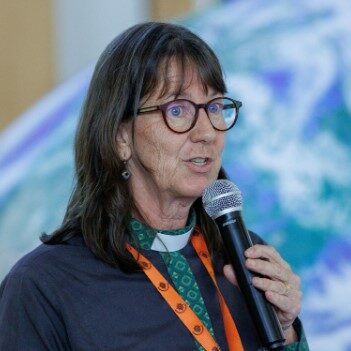
The Reverend Canon Dr. Rachel Mash
Environmental Coordinator, Anglican Church of Southern Africa
"Stewards of God’s Creation: Acting Faithfully in the Midst of Climate Change"
The Reverend Canon Dr. Rachel Mash is environmental coordinator of the Anglican Church of Southern Africa. She is the founder of the Green Anglicans Movement, an initiative that encourages young people to engage in climate action across Africa. She also serves as coordinator of the Anglican Communion Environmental Network and co-chair of the International Season of Creation Steering Committee, demonstrating a long-standing commitment to environmental advocacy within faith communities. Earlier this year, she was appointed as a member of the United Nations Environment Program (UNEP) Faith for Earth Interfaith Women Council. This newly established council, launched on January 30, brings together women faith leaders from across the world to advocate for environmental sustainability and the role of faith communities in addressing ecological challenges.
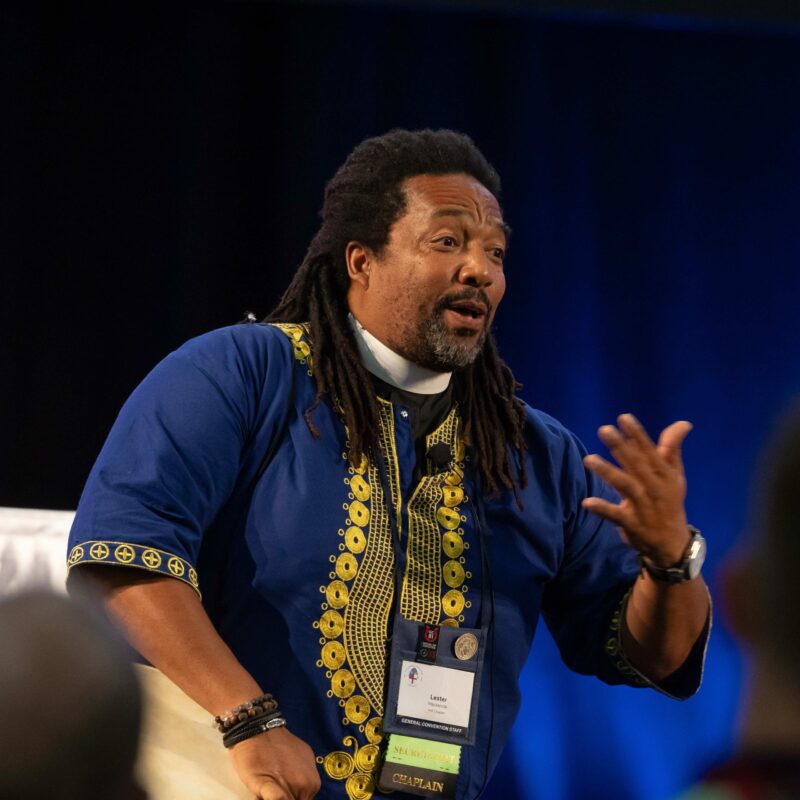
The Reverend Lester Mackenzie
Chief of Mission Program in the Office of the Presiding Bishop; member of the Episciopal Church Delegation to COP 28
"With God’s Help: Truth, Trust, and Transformation in Christ"
The Reverend Lester V. Mackenzie was appointed by Presiding Bishop Sean Rowe as Chief of Mission Program for the Episcopal Church in November of last year. In this new role, he supports bishops and dioceses, diocesan networks, and church organizations by strategizing, coordinating, and building capacity for ministries of racial reconciliation, creation care, formation, and evangelism, and other key mission priorities. A graduate of Virginia Theological Seminary in 2007 and 2023, he served until his appointment on the churchwide staff as rector of St. Mary’s, Laguna Beach, in the Diocese of Los Angeles. While a rector, he served in many diocesan leadership roles, including as president of the standing committee, as well as a deputy to General Convention, where he is well known as chaplain to the House of Deputies. Lester is a native of South Africa and a third-generation Anglican priest, and as he often says, he was nurtured in the womb of freedom, the South African Anglican Church, during the time of apartheid in Johannesburg and Cape Town. He was raised by his grandfather, Bishop Edward Mackenzie, a suffragan of Cape Town who served in ministry with Archbishop Desmond Tutu.
Full Convention & Festival Agenda
While we are fully booked for in-person attendance, online participation is still possible.
Day 0
October 15th
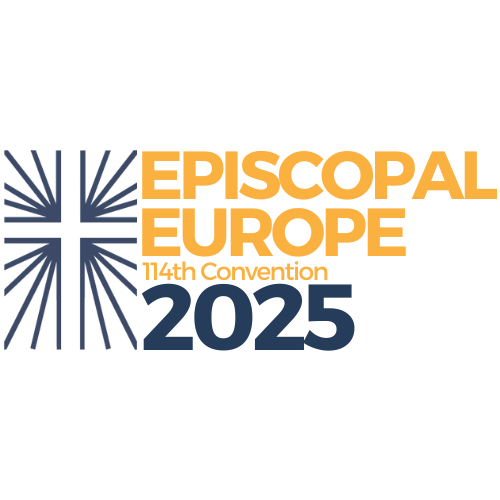
Ministry & Commission Meetings
9AM - 8PM
Groups from around the Convocation use this day to meet in person, conduct business, or hold small team retreats.
Delegate & Visitor Arrivals
3PM - 8PM
Registration and hotel check-in opens at 3pm. Come and explore Wilhelm-Kempf Haus, enjoy the gardens and woods or relax with tea and coffee with fellow delegates in the gathering areas of the center.
Community Dinner
6PM - 7PM
Connect with fellow attendees over an evening meal.
Social Hour
7PM - 10PM
Head downstairs for socialization, bowling and games!
Day 1
October 16th

Morning Prayer
9AM - 9:45am
Join together in worship.
First Session of Business
10AM - 12PM
- Certification of Voting Lay and Clerical Delegates
- Report of the Secretary of Convention
- Report of the Committee on Nominations
- Elections
- Report of the Committee on Resolutions
- Presentation of the 2026 Budget
Lunch
12PM - 1:30PM
Served in the WKH restaurant. Groups and committees are encouraged to find one another and use the time for in person interaction and planning.
Second Session of Business
2PM - 3PM
- Convening of the Assemblée générale
- Approval of newly elected Bureau (The Council of Advice)
- Presentation of the Audited 2024 Financial Report
- Approval of Audited 2024 Financial Report
- Adjournment of Assemblée générale
- Report from Council of Advice
- The Bishop’s Address
Convention Eucharist
5:30PM - 6:30PM
Our time together for worship as a Convocation.
Convention Sekt Empfang
6:30PM - 7:15PM
Everyone present at WKH is invited to join in and mingle with a festive glass of Sekt before we head into our dinners.
The Bishop's Banquet
7:30PM - 10:30PM
Our annual dinner to celebrate our achievements, listen to words from our Bishop, and toast to our community with each other.
The Bishop's Banquet
10:30PM - 12:00AM
Head downstairs for socialization, bowling and games!
Day 2
October 17th

Morning Prayer
9AM - 9:45AM
Join together in worship.
Opening of the Festival of Gathering & Keynote
10AM - 11:15AM
The Reverend Claes Hedström
Ecotheologian, Church of Sweden
“Love All Nature as Thyself”
Festival Workshops Presentation
11:15AM - 11:30AM
A plenary session from our workshop leaders, giving us a preview of what to expect over the next two days.
First Workshop Session
11:40AM - 12:40PM
| Becoming More as Christ: Why is Changing Habits so Hard? | Sacred Curiosity and the Call to Care | Joanna Macy: Active Hope and the Work that Reconnects | Mental Health and Climate |
| The Reverend Dr. Claes Hedström, Ecotheologian, Church of Sweden | The Reverend Troy Mendez, Episcopal Evangelism Society | The Reverend Thomas Müller, Santa Maria a Ferrano Retreat Center Monica Mueller-Roemer, Christ the King, Frankfurt |
The Reverend Canon Dr. Ali Gray, Canon for Spiritual Development in the Convocation |
Lunch
12PM - 1:30PM
Served in the WKH Restaurant.
2nd Keynote
2PM - 3PM
The Reverend Canon Dr. Rachel Mash
Environmental Coordinator, Anglican Church of Southern Africa
“Stewards of God’s Creation: Acting Faithfully in the Midst of Climate Change”
2nd Workshop Session
3:30PM - 4:30PM
| The Franciscan View of Creation: Learning to Live in a Sacramental World | Intercultural Business and Working in Multicultural Teams | Shaping our Prayers with Earth in Mind and Heart | From Augustine to Sarah Mullaly: The Archbishops of Canterbury and our Anglican DNA |
| The Reverend Thomas Müller, Santa Maria a Ferrano Retreat Center | Rebecca Breekveldt 2d Secretary, Central Committee of the Anglican Church, Beligum | The Venerable Walter Baer, Archdeacon of the Convocation The Reverend Scott Moore, Vicar, Saint James the Less & Saint Michael’s |
The Reverend Canon Dr. Charles Robertson, Canon and Senior Advisor to the Presiding Bishop |
Memorial Eucharist
5PM - 6PM
Festival Dinner
6PM - 7PM
Our Festival Dinner invites everyone to share what they learned during they day over a communal meal.
Self-Organizing Groups
7PM - 9PM
Have an idea you’re eager to share? Want to network with others around the Convocation
who are doing something you’re interested in?
We’ll set aside rooms for self-organizing groups to meet following our festive dinner.
Get organized on Whova!
Day 3
October 18th

Morning Prayer
8AM - 8:45AM
Join together in worship.
Episcopal Europe Climate Care Moment
9AM - 10:30AM
A presentation on the insights and work from the Convocation Climate Care Committee, and how to engage within your local context.
3rd Keynote
10:45AM - 11:45AM
The Reverend Lester Mackenzie
Chief of Mission Program in the Office of the Presiding Bishop; member of the Episciopal Church Delegation to COP 28
“With God’s Help: Truth, Trust, and Transformation in Christ”
Lunch
12PM - 1:30PM
Served in the WKH Restaurant.
3rd Workshop Session
1:30PM - 2:30PM
| How to Avoid Food Waste | Climate Fresk | Climate Justice and Racial Justice: The Witness and Work of the Church | Tapping into Our Anglican DNA: Leadership in Complicated and Challenging Times |
| The Reverend Dorothee Hahn | Anita Urassa, Chair, Climate and Creation Care Ministry Initiative; Emmanuel, Geneva | The Reverend Lester V. Mackenzie Chief of Mission Program, The Episcopal Church | The Reverend Canon Dr. Charles Robertson, Canon and Senior Advisor to the Presiding Bishop |
Final Workshop Session
2:45PM - 3:45PM
| Climate Fresk | Mental Health and Climate | Intercultural Business and Working in Multicultural Teams | Shaping our Prayers with Earth in Mind and Heart |
| Anita Urassa, Chair, Climate and Creation Care Ministry Initiative; Emmanuel, Geneva | The Reverend Canon Dr. Ali Gray, Canon for Spiritual Development in the Convocation | Rebecca Breekveldt 2d Secretary, Central Committee of the Anglican Church, Beligum | The Venerable Walter Baer, Archdeacon of the Convocation The Reverend Scott Moore, Vicar, Saint James the Less & Saint Michael’s |
Festival Closing & Dismissal
4PM - 4:15PM
We gather one more time to hear some lessons learned, reflect back on our theme, and make a committment to bring home the message of Becoming Good Stewards of God’s Creation.
We will also bless and send off our Convocation Young Adults Ministry as they embark on their Pilgrimage.
